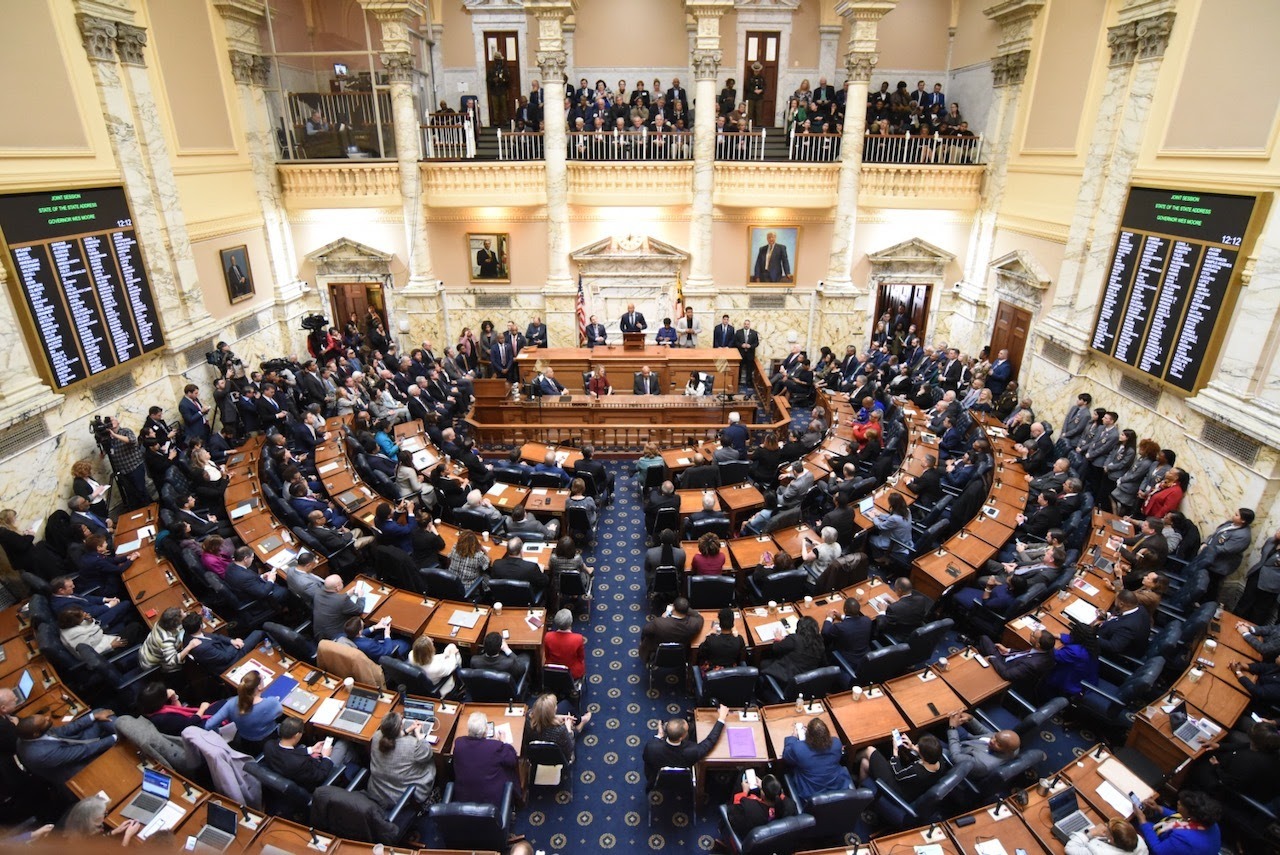Expressing optimism about positive developments, five congressional representatives from Maryland voiced their support on Wednesday for increased funding for the federally backed Chesapeake Bay restoration program.
U.S. Senator Ben Cardin, a Democrat, highlighted the progress made in reducing dead zones and witnessing the resurgence of underwater grasses and oyster crops in the Chesapeake Bay since the 1980s.
The Choose Clean Water Coalition, a nonprofit organization comprising over 290 groups from the Chesapeake Bay region, organized its 13th annual Chesapeake Bay Day, attended by nearly 100 members and nine Congress members.
Maryland Legislators (Credits: Bay Journal)
The coalition advocates for maintaining or enhancing spending on clean water programs and has bipartisan support due to the tangible benefits seen in local communities.
The Chesapeake Bay Program, funded by the U.S. Environmental Protection Agency since its inception in 1983, focuses on pollution reduction and ecosystem restoration in the Chesapeake Bay watershed, covering six states and the District of Columbia.
The coalition emphasized the need for increased funding, particularly supporting the America’s Conservation Enhancement (ACE) Reauthorization Act of 2024, which allocates $93 million for the EPA Chesapeake Bay Program in fiscal year 2025 and $100 million for subsequent years.
The coalition also backs $15 million for the U.S. Fish and Wildlife Service’s Watershed Investments for Landscape Defense (WILD) program, supporting local organizations in the Chesapeake region for wildlife habitat restoration.
Maryland Legislators (Credits: Maryland Public Television)
Congressman Dutch Ruppersberger highlighted the positive impact of grants in areas like sediment reduction, which contributes to Chesapeake Bay’s health.
Ruppersberger, Cardin, and Congressman John Sarbanes were recognized as “Chesapeake Champions” for their significant contributions to restoration efforts.
Congressman David Trone, running for the U.S. Senate nomination, emphasized the environmental priority, particularly in keeping pollutants out of the bay and enhancing conservation efforts.
After a luncheon, coalition members held 44 meetings with Congress members, presenting letters from 169 organizations endorsing the coalition’s funding requests. Senator Van Hollen emphasized the need to maintain momentum and expand resources to protect the bay from federal agencies.
